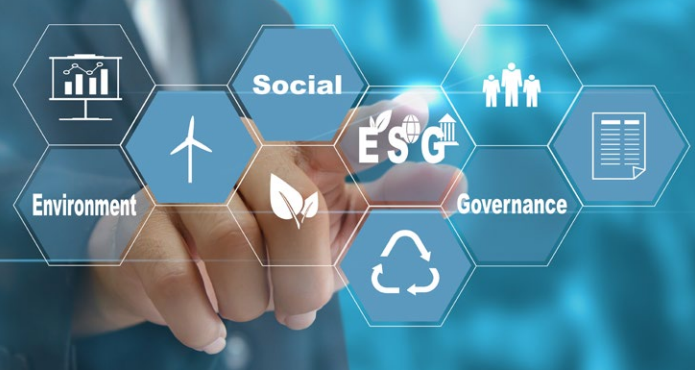Reasons why Environmental, Social, and Governance is gaining traction among businesses

The United Nations 2030 global goals call for a decade of action which requires businesses to be agile and ensure that they look beyond profits to ensure a better future that leaves no one behind while contributing to climate action.
To achieve this, a lot of companies have opted to report on their Environmental, Social and Governance (ESG) to be able to outline their operations and show their contribution to the welfare of the environment and communities with a profit motive in mind. The governance framework plays a key role in ensuring integrity and transparency in the sustainability chain.
The citizenship of a company is evaluated on how environmentally friendly its operations are, its ability to support good causes, and contribute to the welfare of communities.
It measures an organisation’s specific ethical efforts valued by investors, consumers, and employees alike. For those in business, as showcased by numerous research conducted during the pandemic period, consumers have become more ESG conscious and are willing to buy from businesses that are performing well on their ESG metrics. Brand reputation currently stands as one of the global reputation drivers.
ESG helps a company stay competitive and, in a capacity to make environmental and social impacts for their customers and investors. The recognition and measurement of ESG impact attracts private investment, provides opportunities to enter new markets and increases operational performance and sustainability.
Adopting best practices and standards increases competitiveness and productivity;
globally, LEGO Group is one of the brands recognized and highly acclaimed by RepTrak’s 2020 and 2021 because of their reputable ESG effort. What has LEGO done in this space? The company released its first prototype LEGO® brick made from recycled plastic, pledged USD 1 million towards Covid efforts in India, and donated buildable LEGO MRI scanner models to hospitals to help some 200 children aged four to nine annually cope with the uncertainty of having an MRI scan.
One of their challenges in their sustainability journey has been how to rethink and innovate new materials that are as durable, strong and high quality as existing bricks and fit with LEGO elements made over the past 60 years. With the prototype, they are able to showcase the progress they are making in their sustainability space.
In Africa, Old Mutual Group was recently named the Best ESG Responsible Investor, Africa, 2021 by Capital Finance International (CFI), a UK-based journal reporting on business, economics, and finance.
The company, whose focus has been on investing responsibly, has pursued superior, risk-adjusted returns for their clients as they integrate ESG risks and opportunities into all their investment decisions.
In 2020, the group invested USD 2.8 million in university scholarships. Additionally, they have been engaging with the national Treasury Working Group on developing a Green Economy Taxonomy for South Africa. Taxonomy for green, social and sustainable finance initiatives, consistent with international developments, will build credibility, foster investment, and enable effective monitoring and disclosure of performance.
In Kenya, The Nairobi Securities Exchange (NSE) issued Environmental, Social and Governance guidelines for the listed firms in 2021. The disclosures are expected to enhance transparency around listed firms, helping unlock new investments, especially from international investors.
Kakuzi PLC launched its second ESG report in December last year. The report represents the firm’s holistic approach to measuring Economic, Social and Environmental impact across its business. The report also highlights Kakuzi’s commitment to sustainability, aligned with the UN Sustainable Development Goals (SDGs) framework.
The firm spends Ksh 484 million annually purchasing products from local suppliers and has over the last three years invested more than Ksh 500 million in various initiatives geared at enhancing the firm’s ESG capacities, with plans to invest more than Ksh 120 million this year to advance its ESG positioning.
Kakuzi is the first company in Kenya to implement an Operational Level Grievance Mechanism (OGM) that is fully aligned to the UN Guiding Principles of Business and Human Rights. The grievance reporting process known as SIKIKA is designed to address any grievances in a transparent, credible, legitimate and, where appropriate, independent manner.
It is also the first organisation in sub-Saharan Africa to establish a functional Independent Human Rights Advisory Committee (IHRAC). The Kakuzi IHRAC is chaired by the former Attorney-General, Prof Githu Muigai, and underscores the company’s commitment to maintain and uphold human rights as part of its agri-business pillars.
ESG is significant to investors because it safeguards businesses from future risks. These are risks related to climate change, impacts mitigation and adaptation, environmental management practices and duty of care, working and safety conditions, respect for human rights, anti-bribery and corruption practices, and compliance to relevant laws and regulations.
ESG practices make a company less vulnerable to reputation, political and regulatory risk and thus leading to the lower volatility of cash flows and profitability. Doing the right thing means you are less exposed in the long run. Companies should view ESG risks as opportunities to attract investors and reduce their cost of capital.

